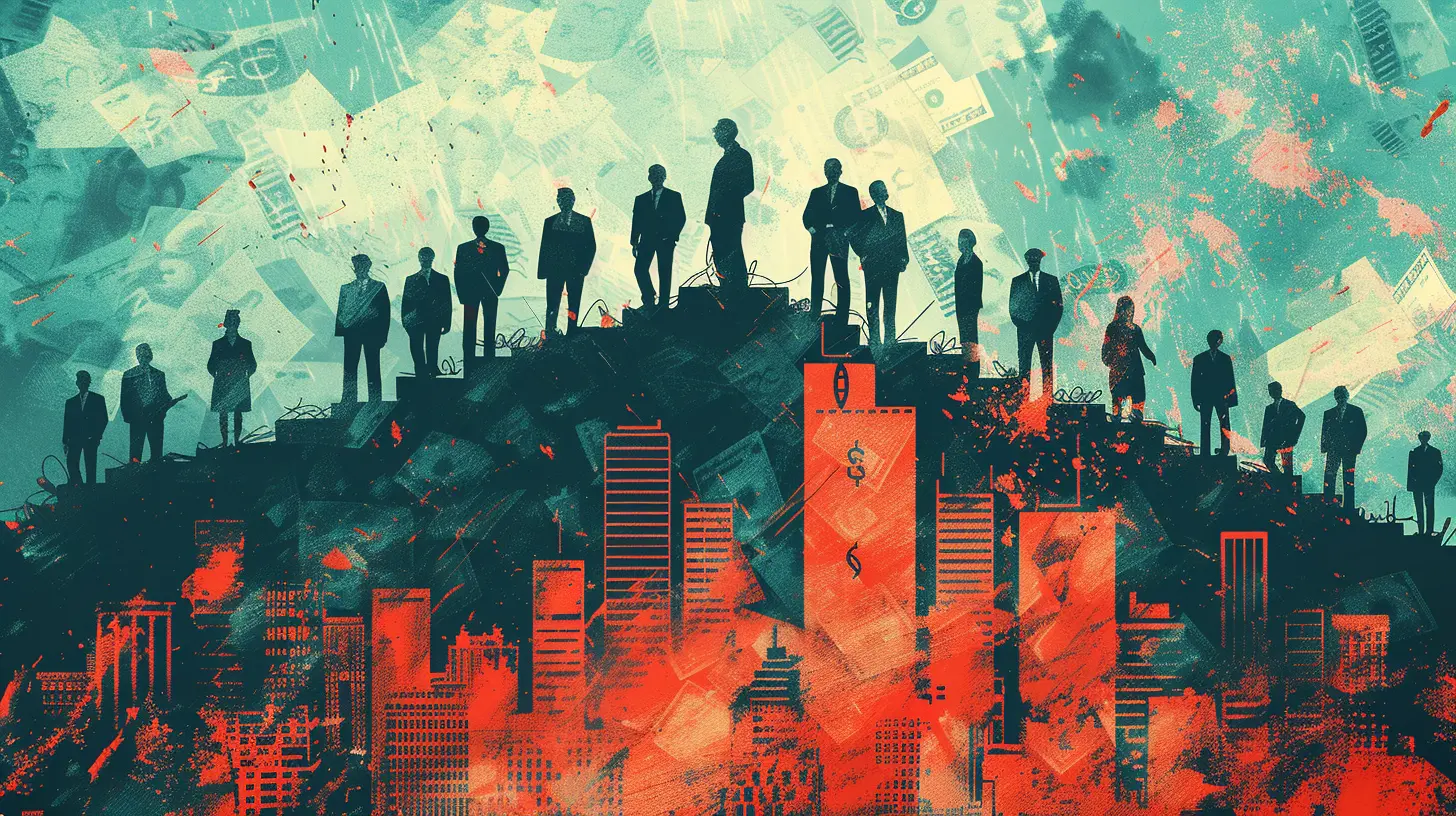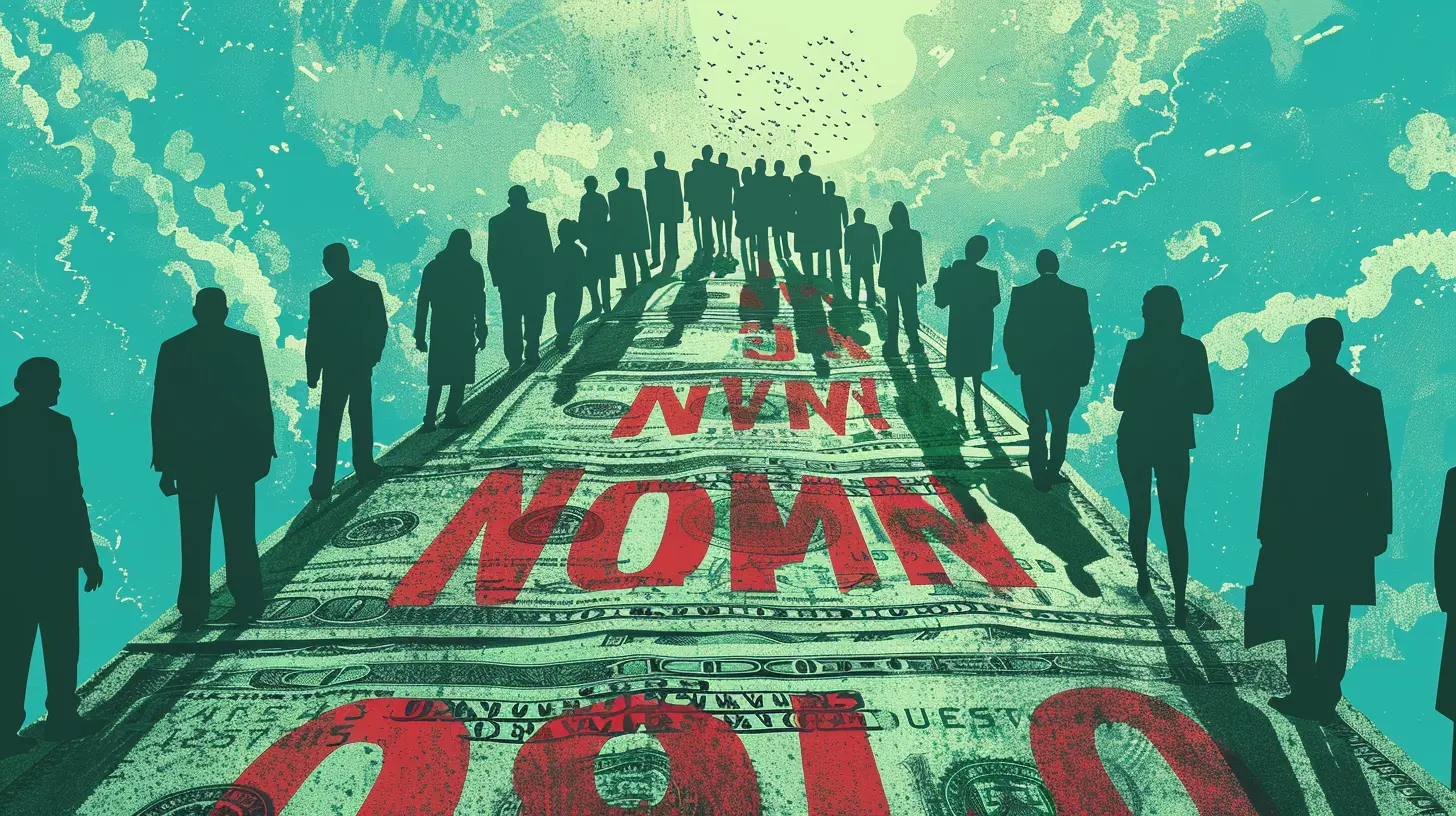Exploring the Consequences of Income Inequality on Democracy
20 July 2025
Let’s start with the elephant in the room—income inequality. It's one of those topics that often sparks heated debates at dinner tables, social media threads, and even political campaigns. But have you ever stopped to think about how this widening gap between the rich and poor affects something as important as democracy? It’s not just about who drives a fancy car or lives in a luxurious house; income inequality has ripple effects that travel far and wide, shaking the very foundations of democratic systems.
In this article, we’ll break it all down, unpacking the ways in which income inequality undermines democracy. So grab your favorite beverage, sit back, and let’s dive into this pressing issue. 
What Is Income Inequality, and Why Does It Matter?
Alright, let’s make sure we’re on the same page. Income inequality basically means there’s an uneven distribution of wealth within a society. Picture a pizza—if one person snatches six of the eight slices, the rest of the group is left squabbling over crumbs. Not so fair, right?Now, why does this matter? Beyond the obvious unfairness, income inequality creates economic gaps that lead to social and political gaps. And when this divide gets too wide, it starts to erode the principles of fairness and equality that democracy is built on. 
Connecting the Dots Between Income Inequality and Democracy
1. Political Influence Tilts to the Wealthy
Here’s the thing: money talks. In democratic systems, every citizen supposedly has an equal voice—one person, one vote, right? But in reality, those with deep pockets often have a louder microphone.How so? Wealthy individuals and corporations donate millions to political campaigns or lobby for policies that align with their interests. This means their voices often overshadow those of ordinary citizens, tilting the political field in their favor.
Think about it: if billionaires can afford to bankroll entire campaigns, who’s the politician going to listen to? The billionaire, or the everyday worker struggling to make ends meet? This imbalance makes the system feel more like an oligarchy than a democracy.
2. Eroding Trust in Institutions
Ever heard someone say, “The system is rigged”? That sentiment often stems from income inequality. When people feel like the economic deck is stacked against them, they lose trust in institutions—like the government or judiciary systems—that are supposed to represent them.If voters believe policymakers cater only to the wealthy elite, why bother showing up at the ballot box? This erosion of trust creates apathy, and when voter turnout drops, democracy takes a hit. A government “by the people, for the people” becomes increasingly out of reach.
3. Polarization and Social Division
Income disparity doesn’t just divide bank accounts—it splits society into “haves” and “have-nots.” And let’s be honest: resentment brews in the air.The upper class might see the lower class as lazy or undeserving, while those struggling financially might view the wealthy as greedy and exploitative. This kind of “us vs. them” mentality breeds polarization, making it harder for people to find common ground.
Democracy thrives when people come together to solve problems. But if society is fractured along economic lines, collaboration becomes a pipe dream. Instead, you get political gridlock, social tensions, and a bunch of shouting matches on cable news.
4. Economic Inequality Fuels Populism
When people feel left behind, they start seeking alternatives—and that often means turning to populist leaders. These figures usually promise to “drain the swamp” or “shake up the system,” appealing to the frustrations of the economically disadvantaged.While some populist leaders genuinely aim to address inequality, many oversimplify complex problems or exploit people's anger. This can lead to authoritarian tendencies or policies that weaken democratic institutions. In short, income inequality is the perfect storm for populism to thrive.
5. Barriers to Political Participation
Here’s a sobering thought: income inequality can literally keep people out of politics. Running for office isn’t cheap. From campaign ads to travel expenses, the costs can be astronomical.For everyday folks who are just getting by, even considering a political campaign is out of reach. This financial barrier ensures that decision-making power stays concentrated among the wealthy, perpetuating a vicious cycle.
Is it any wonder why so many politicians come from privileged backgrounds? 
The Psychological Toll of Income Inequality
Beyond the structural issues, let’s talk about the human side of things. Income inequality can take a psychological toll on people, fostering feelings of hopelessness, anger, and frustration.Imagine working two jobs and still struggling to pay rent while seeing others flaunt their wealth on social media. It’s demoralizing, isn’t it? Over time, this despair can sap people's motivation to engage in political processes, further weakening democracy. 
What Can Be Done?
Alright, now that we’ve painted a pretty bleak picture, you might be wondering: Is all hope lost? Absolutely not! Addressing income inequality won’t be easy, but there are actionable steps that can help bridge the gap and strengthen democracy.1. Progressive Taxation
Implementing tax policies that ensure the wealthy pay their fair share can help redistribute wealth. This extra revenue can then be invested in public services like education, healthcare, and infrastructure to uplift the economically disadvantaged.2. Campaign Finance Reform
Limiting the influence of money in politics is crucial. By capping campaign donations or providing public funding for elections, we can level the playing field and amplify the voices of everyday citizens.3. Strengthening Social Programs
Stronger social safety nets can help reduce poverty and inequality, giving people the resources they need to participate in democracy more fully. After all, it’s hard to focus on voting when you’re worried about putting food on the table.4. Education and Awareness
Knowledge is power. Educating the public about the consequences of income inequality can inspire grassroots movements and hold policymakers accountable.Wrapping It Up
Income inequality isn’t just an economic issue—it’s a democratic one. When too much power and wealth get concentrated in the hands of a few, the very fabric of democracy starts to unravel.But here’s the silver lining: awareness is the first step toward change. By understanding the consequences of income inequality and advocating for reforms, we can work toward a more equitable and democratic society.
So, the next time someone dismisses income inequality as just a “money problem,” remind them it’s a democracy problem too. After all, a healthy democracy depends on all of us having a fair shot—not just the lucky few.
all images in this post were generated using AI tools
Category:
Income InequalityAuthor:

Zavier Larsen
Discussion
rate this article
1 comments
Veda Fisher
Income inequality and democracy? It's like mixing oil and water. One thrives on balance, while the other sinks in the wealth disparity quagmire!
July 29, 2025 at 12:08 PM

Zavier Larsen
Thank you for your insightful comment! You're right—income inequality can severely undermine democratic processes by concentrating power and diminishing representation. Addressing this imbalance is crucial for a healthy democracy.


